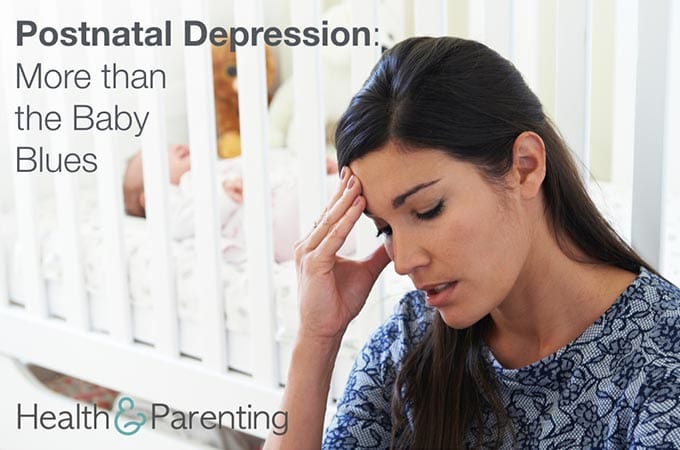From grandparents to friends, everyone around you is excited about the birth of your baby. You love your baby and expected to feel nothing but joy. So you may be surprised to find yourself feeling a bit down or maybe even worse.
According to research, up to 80 percent of women experience the baby blues a few days after they give birth. Symptoms may include moodiness, trouble sleeping and feeling weepy. Usually, symptoms of the baby blues go away in a few weeks.
But some women experience more severe symptoms known as postnatal depression. At first it can be difficult to distinguish between the baby blues and postnatal depression. But symptoms of postnatal depression tend to be more severe, and they often last longer than a few weeks. It is estimated that about ten percent of women experience postnatal depression.
Symptoms of postnatal depression may include:
- Depressed mood
- Excessive crying
- Withdrawing from loved ones
- Panic attacks
- Intense irritability or mood swings
- Loss of interest in activities
- Trouble concentrating
- Feelings of guilt or worthlessness
Am I at Risk for Postnatal Depression?
Postnatal depression may develop due to a combination of factors. For instance, hormonal changes occur after you have your baby. When levels of estrogen or progesterone drop, so can your mood. Also, caring for a newborn is a lot of work. No matter how much you love your baby, it’s easy to become overwhelmed. Add sleep deprivation into the mix and you can see how emotional issues can develop.
Although any woman can develop postnatal depression after giving birth, there are a few things that increase your chances. Risk factors include having a difficult pregnancy, relationship problems and a weak support system.
Help for Postnatal Depression
Some women hesitate to seek help if they feel depressed after giving birth. They may feel ashamed or guilty. But postnatal depression is not anything to feel embarrassed about, and it does not mean you are a bad mommy. If you think you may have postnatal depression, talk to your doctor.
There are lifestyle changes, which can help. For example, although it can be a challenge, make time for yourself. Eat well and slowly ease back into exercise with your doctor’s OK. Also, make sleep a priority. Have someone watch your little one so you can rest, and nap when your baby naps. Having support can also make a big difference. Consider sharing your feelings with your partner. Join a support group for new moms.
Professional treatment is also recommended in some cases. Talk therapy is sometimes used to treat postnatal depression. Antidepressants may also be an option in some instances. But be sure to only take antidepressants with your doctors consent.
Post-natal depression left untreated can interfere with your ability to bond with your baby. Keep in mind, the best way to take good care of your little one, is also to take care of yourself.
Written by Mary Ann DePietro @writerlady34
This information is not intended to replace the advice of a trained medical doctor. Health & Parenting Ltd disclaims any liability for the decisions you make based on this information, which is provided to you on a general information basis only and not as a substitute for personalized medical advice. All contents copyright © Health & Parenting Ltd 2016. All rights reserved.










